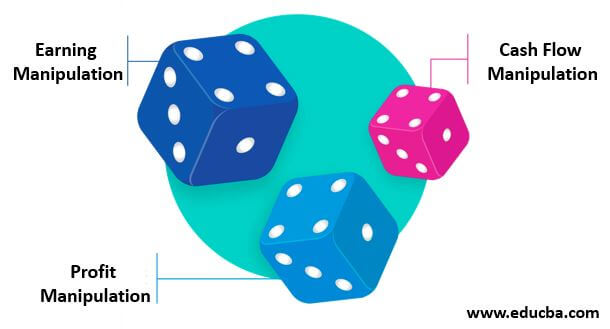Updated July 20, 2023
Introduction of Cook the Books
Cook the books is considered more of a slang in the accounting field where it means intentional dressing of financial books to make the picture look more merrier than what it actually is and this involves the manipulation of the financial data to blow the company’s earnings and on the other hand shrink the expenses with the ultimate objective of pumping the bottom line of the company.
Explanation of Cook the Books
The cooking of books means manipulation of numbers in the books of accounts which is generally done to hype up the earnings of the company and shed the numbers which it has borne as an expense. The cooking of books is a kind of slang that is used in the field of accounting for such malpractices or fraudulent activities and this is primarily done with the approval of the management. The most well know scam of cooking of books is the Enron case where very sophisticatedly books were dressed to inflate their profitability and deflate the actual expenses. It was one of a case that gave regulatory authorities the insight about how companies have become so clever in cooking up the books, hiding the real scenario, and showing overstated numbers in the books of accounts. The Sarbanes-Oxley act brought into light many such incidents where the company was using methods to dress their books. Still even though after passing the act companies are still at the time bent upon cooking their books and can find several loopholes to do so.
How Companies Cook the Books?
There are four ways companies may use broadly to cook their books:
- Earning Manipulation
- Profit Manipulation
- Cash Flow Manipulation
1. Earning Manipulation
- Premature recording of revenue: A company may record its revenue which it has still not received. This means booking of revenue even before the goods have been sold in the market.
- Recording of income received from investments in the revenue line: Any income received from sale of investments or investment made which are generally the secondary sources are termed as operating revenue. When a company goes for the sale of assets or generates income from an investment like sale of shares, if this too they record as the revenue it will simply boost the top line of the company. Also, this are one time actions and a company repeat them in the future.
2. Profit Manipulation
- Make expenses look similar to earning: At times companies may change their accounting policies in such a manner that expenses may look like earnings. Many companies uses this to manipulate their net profits. An example can be a simple change in how depreciation is calculated can bring about a different picture altogether and help the company boost profits.
- Hiding expenses as capital expenditure: Another manner of cooking books is to treat expenses as capital expenditure which means instead of treating it as expense in the current financial year it is recorded as an investment to be made in the subsequent year.
3. Cash Flow Manipulation
- Cash from financing activities is shown as cash from operating activities: Cash can be earned by the business in two ways where in first method cash is generated by the usual operations of the business and in the second method cash is generate cash is generated from external source such as companies taking a loan. Most companies will try to boost their profits by showing cash from financing activity or the loan taken as cash from operating activity.
- Use acquisition as to boost operating cash flow: This is done by making use of the target company which may be rich in cash. Management will tend to win the support of the shareholders by making them in favor of the particular acquisition as highly beneficial to the company.
Example of Cooking the Books
data-contrast=”auto”>Few example are as follows:
- A well known airlines Jet Airways cooked its books by changing its depreciation policy by changing the policy from written down method to straight line method and in this process write back a lot of money to its profit and loss account.
- AOL involved in a marketing promotion was distributing certain CDs but on one hand where they should have treated it as marketing expense considered it to be capital expenditure where the amount got transferred from the profit and loss to the balance sheet and got spread for a couple of years.
Ways to Cook the Books
The different ways are as follows:
- Overstating the income and deflating the expenses
- Showing operating expense as capital expenditure
- Showing cash from financing activities as cash from operating activities
- Delaying the expenses and accelerating pre-merger expenses.
- Companies finding ways to reduce the benefit plans given to employees like pension plans.
- Creation of a separate subsidiary or sister firm to house the liabilities or take up expenses that the parent company does not want to show the world.
- Companies may opt for synthetic leases that allow companies to rent an asset to itself.
Why Companies Cook Their Books?
- One prime reason company cook their books are to meet or exceed their market expectations.
- There can be personal interests to the management e.g. share price movement has incentives linked to the managers.
- To demonstrate a growth rate on a constant basis by not reporting correctly the current deviation or spurt in the growth rate.
- To have an impact on the share price trading in open market companies may cook their books.
- To have the faith and belief of the shareholders and to keep on motivating them to invest in the company with the help of management may adapt to fraudulent practices or cook their books.
Conclusion
As discussed above there can be numerous loopholes available for companies to cook their books and present a false picture to the overall world. Companies are nowadays smart even to play sophisticatedly while dressing their books. It solely depends on the regulatory authorities to pro-actively act on these incidents and disclose such companies in the open world.
Recommended Articles
This is a guide to Cook the Books. Here we also discuss the introduction to Cook the Books and how companies cook the books along with different way and few example. You may also have a look at the following articles to learn more –



